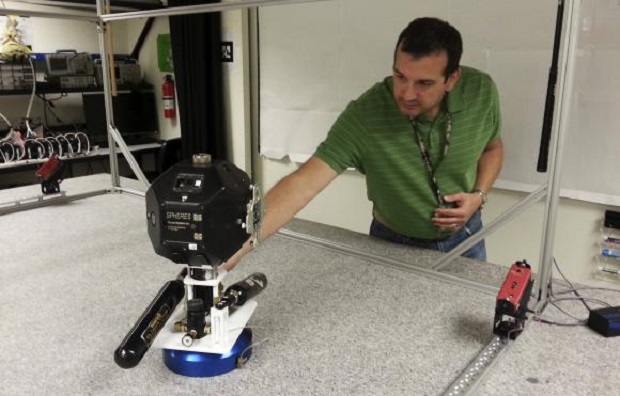Just when you believed that NASA’s robots couldn’t possibly be more awesome, the agency announced that it will equip some of them with Google’s Project Tango smartphone and send them into space, to join the ISS astronauts.
As weird as it may sound, enabling robots to sense depth is beneficial for us, or at least for the luckiest of us who get to go to space. Google’s Project Tango AR smartphones will give the Synchronized Position Hold, Engage, Reorient, Experimental Satellites, or SPHERES, the ability to create a 3D map of the interior of the ISS. Using quite a few motion-tracking cameras and an infrared depth sensor, the spherical robots will detect the sharp edges of whatever objects are on the space station. After doing that, the SPHERES will be able to move along undisturbed, as they would know ahead of time what obstacles await them.

Smart SPHERES project manager Chris Provencher mentioned in an interview with Reuters that “We wanted to add communication, a camera, increase the processing capability, accelerometers and other sensors. As we were scratching our heads thinking about what to do, we realized the answer was in our hands. Let’s just use smartphones.”
Since going out of the ISS for maintenance jobs is quite a dangerous activity for the astronauts, regardless of how well-trained they are, we can only hope that such depth-sensing robots will be able to take care of those tasks instead of them in the near future. This way, the astronauts can concentrate their attention on safer things that require human attention.
The SPHERES aren’t terribly fast, as their CO2 blasts can only push them through space at 1 inch per second. In other words, I don’t know how adequate these robots are for emergency situations, but I’m sure that NASA is going to improve them in many aspects, speed being one of them.
When referring to the goal the depth-sensing robots were built for, Provencher pointed out that “This type of capability is exactly what we need for a robot that’s going to do tasks anywhere inside the space station. It has to have a very robust navigation system.”
To be frank with you, I tremble at the thought of having some Sci-Fi football-sized robots hovering anywhere near the Earth. The following Doctor Who clip should give you an idea about what I’m referring to:
Be social! Follow GadgetHer on Facebook and Twitter, and read more related stories about Valkyrie, NASA’s latest superhero robot that has an Iron Man vibe










